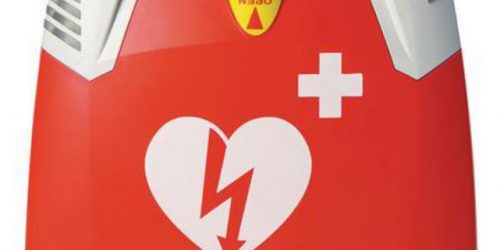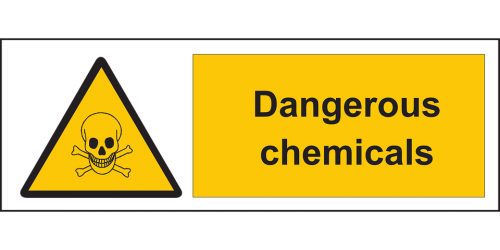Purchasing guide: Choosing your bin bags with Manutan EXPERT
Efficient waste management in companies must respect good hygiene, eco-friendliness, safety and well-being at work. As essential consumables for the retrieval, storage and transport of waste, the need for bin bags is central to your waste management policy. In this guide, you’ll find our tips for choosing the right bin bag size for your needs. We will also take a look at the main factors in choosing the most suitable rubbish bags.
What criteria should you use to select the right bin bag?
To implement an efficient waste management policy, it’s essential to select supplies suited to the company’s needs. There are several parameters to consider when selecting from the wide product range offered by Manutan EXPERT. The choice of refuse sacks depends on the type of waste and its quantity, as well as the bin models and their location.
Sufficient strength for each type of waste
A bin bag’s strength depends on the materials it is made from. Most bin liners are made from polyethylene, which is the most common type of plastic, with two types of density. This is the standard black bin bag model.
The high-density polyethylene bag (or HDPE bag), 10 µ to 20 µ thick, is robust and impact-resistant. However, this type of bin bag is in danger of tearing and cannot, therefore, contain sharp objects. It is suitable for light waste such as paper or cups.
The low-density polyethylene bag (or LDPE bag), 25 µ to 80 µ thick, is resistant to perforations thanks to its stretching capacity.
Manutan EXPERT takes care to select suppliers that perform tearing and stretching tests on their bin liners to offer the best quality products.
Make sure you select the right size
Bin liners are supplied in sizes from 5 litres for a toilet pedal bin or a swing bin and up to 2,500 litres for a container bin. This is therefore an important criterion.
To select the right bag size, the litre volume is not enough. For the same volume, a bin and a waste-paper basket may have different dimensions. To determine the bag size, you must start by measuring the perimeter of the bin in cm, which, divided by two, gives the bag’s width. You must then measure the height in cm, including a margin to be able to fold over the edges of the bag.
Bin bag size according to location
The bin bag volume depends on the location of the bin in the company:
- Toilets – 5 to 20 litres
- Offices, kitchens and building lobbies – 30 to 150 litres
- Road bins and cleaning trolleys -110 litres
- Rubbish collection containers – 120 to 1,100 litres
A suitable closing system
There are two main closing systems, offering different levels of ergonomics and price.
Bin bags with drawstrings offer a closing system that makes it easy to handle the bag. Once tied, the drawstrings can be used as handles, a drawstring refuse sack can be filled with more than a bag that closes in the usual way. A better fill minimises the quantity of bags used and reduces handling for the people responsible.
Bags that close in the usual way generally have the advantage of being better value than drawstring bags. However, they’re still less ergonomic and take longer to close.
Colours that facilitate the identification of waste
Although a standard bin bag is black, there are also other colours that fulfil specific roles. The colour may, first of all, play an informative role. Combined with suitable signage, a coloured bag may serve as an indicator for selective sorting.
Transparency offers visibility of the contents of the bag, which enables users to know quickly whether the bags are full. This possibility of seeing the contents is also used with the framework of risk prevention, in particular in public places.
Bin bag accessories
Bin bag accessories have been developed to help keep bin liners in place and handle them. The metal stands (to be fastened to the ground, in a lorry or mobile) keep the bin bag open, making it easier to fill. The cable tie device enables you to tie the bin liners easily and securely with iron cable ties.
Why is it important to choose your bin bags well?
Bin bags play several essential roles in a work environment. They enable you to comply with the current regulations in terms of waste sorting, hygiene and safety. By contributing to the implementation of good waste management and employee well-being strategy, they also contribute to the implementation of organisations’ CSR strategies.
Guaranteeing the hygiene of your premises
One of the functions of a bin bag is to keep waste apart from its environment. This reduces the risks of contamination via the spreading of viruses, bacteria, and parasites. Improper waste management may therefore have harmful consequences on human health, nature and the products offered by the company.
Promoting users’ comfort
Ergonomic bins and bags help reduce musculoskeletal disorders (MSDs). The main people likely to be exposed are building maintenance people responsible for emptying and moving bins. Bins that are difficult to empty and bags that are too heavy may have serious consequences on their health in the long term.
Bins and bags that are both well designed and easily identifiable make it easier to set up selective sorting. Finally, it’s essential to take into account the potential nuisance that bins may cause to users. For example, bins arranged in dining areas must be suitable for liquids and equipped with lids and pedals.
Facilitating selective sorting on premises
An effective waste recycling policy starts with the right choice of selective sorting bins in a company. Among the bag ranges sold by Manutan EXPERT, recycling bin bags are particularly suitable for sorting in an industrial environment. Sorting bags for shelves are, for example, specially designed for installation in warehouses or order preparation racks. The large icons printed on the bags facilitate sorting for teams in these vast workspaces.
Setting up selective sorting outdoors
Many companies will need to implement recycling solutions in outdoor spaces. These bins and their bags, equipped with specific signage, must be able to withstand unforeseen weather. Manutan EXPERT offers a large selection of strong outdoor sorting bins made in Europe, guaranteeing excellent quality.
Observing the standards and legislation in force
European regulations govern waste management in companies. Waste producers and owners are responsible for reprocessing their waste. Through waste management, companies undertake to:
- Not generate any risks of contamination to water, air or soil;
- Not harm fauna and flora;
- Not cause any sound or olfactory nuisance;
- Respect landscapes and sites of interest.
Controlling your budget
Like all the consumables used by companies, bin liners generally have a budget determined over a defined period. It’s therefore important to anticipate your bin bag needs, taking into account potential variations in activity over the year.
Grouped bin bag orders have advantages, such as a reduction in the number of consumable deliveries over the year. You can therefore optimise the number of operations involved in the storage on delivery. Bulk orders enable you to benefit from lower prices and reduce delivery costs. For example, at Manutan, delivery is free!
Which bin bags are used for specific professional purposes?
Professionals must collect waste of various types according to the business sector in which they work. Collection is also done differently in offices, workshops, warehouses or outside, near delivery spaces. Manutan EXPERT has developed a range of bin bags and covers that meet professional needs.
In addition to standard bin liners, many models are specially designed for specific purposes and environments:
- Bin bags and container covers;
- Fireproof aluminium bags, reserved for collecting from ashtrays, which limit the risks of fire and prevent smell;
- Biodegradable, humidity-resistant paper bin bags for compostable organic materials;
- Reusable pop-up bags with handles, which facilitate the collection of green waste;
- Bags for toilet areas, such as white heavy-duty bags and individual bags for nappies or sanitary towels;
- Bags to collect waste from activities and treatments with the risk of infection, used in medical environments, which receive special treatment;
- Transparent refuse sacks for better safety in public spaces;
- Coloured bin liners, enabling selective sorting;
- Reusable high-quality bags which may contain heavy and liquid contents;
See all Manutan EXPERT products available by visiting the ‘Bin bag’ category of our website.






